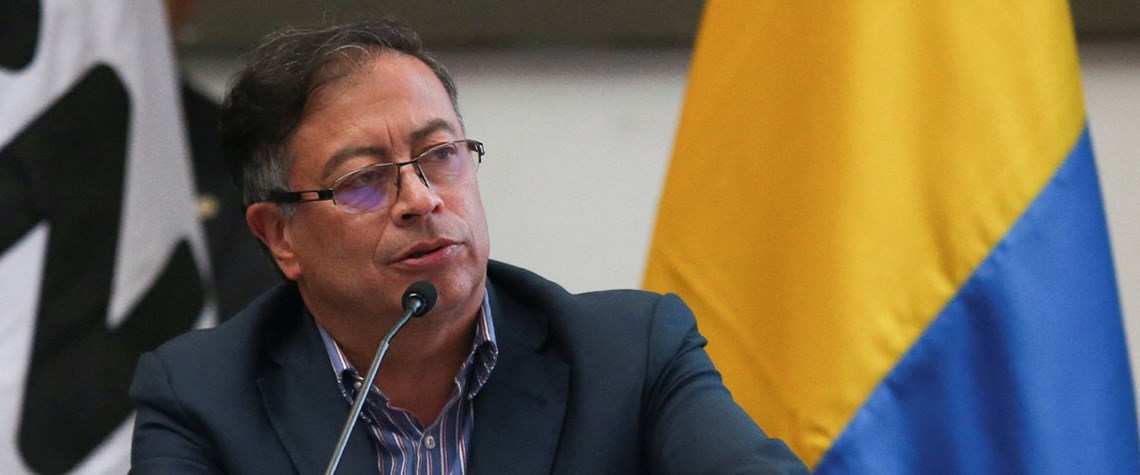Colombia’s shift to the left with the election of President Gustavo Petro could signal the beginning of the end of the country’s oil and gas sector. Before the election, the former guerrilla fighter pledged to terminate all new upstream exploration and future bidding rounds—echoing Mexico’s leftist president Andres Lopez Obrador, who quickly halted fresh licensing rounds upon taking office—instead refocusing government efforts on accelerating the energy transition.
Petro has long been a critic of Colombia’s dependence on the fossil fuel sector, and notably appointed environmental activist Francia Marquez as his vice-president.
But the realities of office may ultimately force a compromise, particularly considering Colombia’s energy security dilemma. Latin America’s third-largest oil and gas producer has struggled in recent years to offset declining reserves, despite promoting a host of bidding rounds.
In late June, the EIA stated that natural gas demand outstripped supply in 2020, while Colombia’s Ministry of Mines and Energy estimates the country has only around eight years of gas reserves remaining.
“Petro’s rhetoric softened as election day neared, stating that existing contracts will be honoured, but the apparent determination to end new bid rounds is still a worry for the sector and its long-term health,” says Andres Armijos, head of Latin America research at consultancy Welligence Energy Analytics. “However, he does not control Congress, which is highly fragmented and would require him to build out a coalition to push his plans.”
Active sector
Whatever direction the government takes, for now operators are enjoying the bullish commodity price environment. According to Welligence research, as of one year ago there were around 25 drilling and 75 workover rigs active in Colombia, while in May this figure had increased to 44 and 90 respectively.
Colombian NOC Ecopetrol has set itself the target of 700,000-705,000bl/d oe in 2022, with the longer-term ambition of bumping up production to 800,000-850,000bl/d oe by 2030, with the potential to reach as high as 900,000-950,000bl/d oe.
Calgary-based independent Parex Resources is guiding 17pc annual production growth in 2022, with the ambition of more than doubling its output to over 100,000bl/d oe through the next decade.
Fellow Canadian operator Gran Tierra Energy is projecting a production increase of around 15-23pc in 2022, building on the 17pc annual rise the firm recorded last year. The independent says it should complete drilling at the Acordionero field by the end of July, before drilling again at the Moqueta field between October and early 2023. The operator will also drill six to seven exploration wells in Colombia and Ecuador in the second half of the year.
Colombia’s second-largest operator, Geopark, is also targeting 10-12 exploration prospects in the CPO-5, Llanos 87 and Llanos 94 blocks this year. On completion of its upstream programme, the firm expects to hit around 10pc production growth for the year.
Looming reserve crunch
But production growth alone will not solve the country’s looming reserve crunch. “We still see the long-term tendency for production to decline but have seen a significant pickup in activity over the last several months, given the substantial increase in commodity prices,” explains Armijos.
The government has taken steps in recent years to offer acreage to IOCs through several licensing rounds. And Shell has exploration planned at its Gorgon-2 block in the deepwater Caribbean Sea. “The success of their activities is of critical importance to the supply of natural gas to the Colombian market for the medium-to-long term,” adds Armijos.
And Colombia also has abundant shale resources. Ecopetrol has been trialling several unconventional pilot projects in the hope of replicating the Permian. “In terms of gas and LPG, there are going to be new sources of supply for gas coming from the Caribbean offshore, coming from the Piedemonte foothills and also from unconventionals,” says Alberto Consuegra, COO at Ecopetrol.
But fracking in Colombia is also highly controversial, and the new president has publicly voiced his disapproval and environmental concerns. “With Petro set to take power, we believe it highly unlikely that any progress [will be] made in this space,” cautions Armijos.








Comments